Spartanburg, South Carolina, is one of the nation’s fastest growing communities, home to seven postsecondary institutions and committed employers. Collaboration abounds. The city and county governments work closely with nonprofit organizations, businesses and community partners, and the seven school districts regularly collaborate and launch initiatives together.
While there is much to celebrate, Spartanburg acknowledges that economic opportunity is not yet available to all. One in eight residents lives in poverty, including nearly two in five children. Unfortunately, for most of those children, the experience continues throughout their lives. Spartanburg ranks in the bottom 10% of counties nationwide for economic mobility. 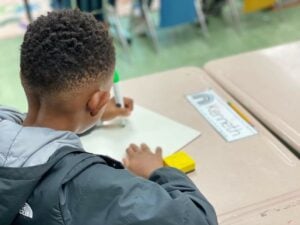
Spartanburg Academic Movement (SAM) was founded to improve economic mobility across the community. SAM is an all-in partnership of education, business, government, foundation, community and faith leaders. Now, their work has earned SAM the Systems Transformation designation along the StriveTogether Theory of Action™, the most advanced stage along our framework for change. From cradle to career, SAM is expanding opportunity for young people in the community.
Transforming systems for better early childhood outcomes
Every year, about 3,500 babies are born in Spartanburg County. Their first experiences shape their futures. That’s why SAM focuses on the earliest needs of Spartanburg’s residents and their families, starting with prenatal care. The goal is to prepare more children to enter school ready to succeed.
Hello Family is a key component of early childhood support in Spartanburg. Hello Family offers evidence-based, comprehensive prenatal and maternal health services to every child born within the city’s limits. Hello Family oversees programs designed to improve health outcomes for young mothers, focusing on Black maternal health. Families help shape programing through focus groups and serving as parent ambassadors. 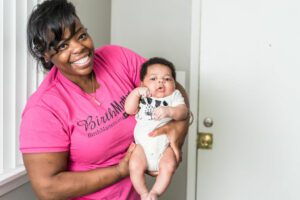
The Hello Family initiative is now set to grow beyond city limits, as SAM’s Movement 2030 strategic plan seeks to spread this work to the entire county. Between 2023 and 2030, SAM’s strategies are projected to reach approximately 20,000 children and their families through targeted services. During this period, SAM estimates that 1,800 more children will be prepared for school when they arrive. This transformation will also lead to healthier newborns and better access to services for all families.
Transforming systems for better student outcomes
SAM is dedicated to accelerating equitable K-12 outcomes. The Out-of-School Time Collaborative is working to improve, expand and sustain high-quality after-school and summer programs for middle and high school-age youth to improve economic mobility. The Collaborative includes 31 organizations and reaches more than 2,900 middle and high school students experiencing poverty. Partners coordinate program delivery within middle schools so that students can access enriching activities without having to leave their schools.
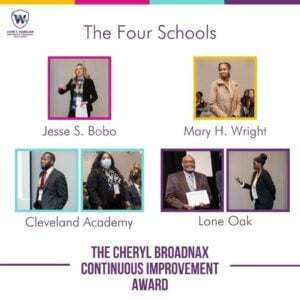
Another example of SAM’s approach to cradle-to-career outcomes is its Four Schools Project, which started in 2016 in the four elementary schools with the highest poverty rates in Spartanburg County. These schools faced a significant literacy challenge, with a collective 14.7% proficiency rate for third grade reading.
SAM set a goal to improve early grade reading proficiency to 30% by 2021. They supported schools to take up continuous improvement methodology, where data is used to improve strategies as work progresses. Despite the pandemic, the four schools surpassed their goal, achieving a 32.4% reading proficiency rate in 2022. Racial disparities narrowed, too. With these results, districts began to cover some costs for continuous improvement. The pilot program is now expanding to the ten schools experiencing the highest poverty rates across the county.
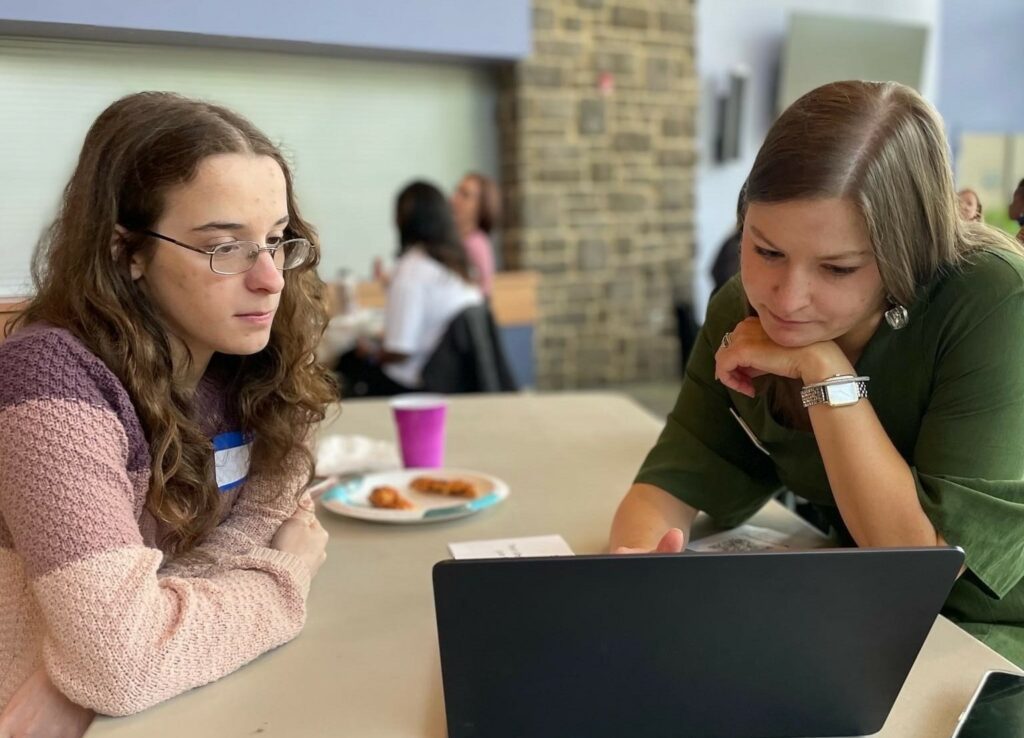
Transforming systems for better postsecondary and workforce outcomes
SAM and their partners are creating more opportunities for youth and families to achieve their education and career aspirations.
The Free Application for Federal Student Aid (FAFSA) is a critical gateway to postsecondary education. SAM is working to ensure that every eligible student can access the financial resources by providing public high schools with monthly student-level data on completion. With this data, guidance counselors and career development facilitators can individualize supports and reach more students.
SAM also engages students in this work. Five high schools harnessed the power of student voice to develop outreach and FAFSA completion strategies. Broome High School increased FAFSA completion rates from 49% to 67% of the senior class between 2020 and 2023. Student ambassadors played a pivotal role by encouraging peer participation. 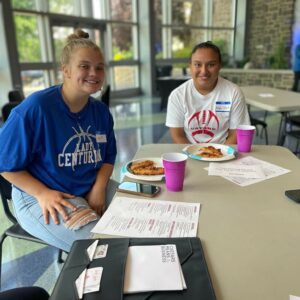
Another success at Broome came in addressing “summer melt” — when students who intend to enroll in college ultimately do not. SAM introduced the Start Smart initiative at high schools with lower college enrollment rates. Start Smart pairs students with community volunteers who serve as mentors throughout the summer, guiding them through the enrollment process. Upon successful enrollment, students receive $250 to their college bookstore. At Broome, nine out of 10 participating seniors enrolled in college immediately after graduation.
Additionally, one statewide success is the investment in free associate degrees in high-demand fields, enacted in 2021. The Workforce Scholarships for the Future initiative has provided access to higher education and degree completion for over 10,000 South Carolinians. SAM’s continued advocacy aims to make this program permanent, and the governor has increased investment for the 2024 academic year.
What’s ahead for Spartanburg County?
Anchored by SAM, Movement 2030 is a community plan to advance economic mobility in Spartanburg County, demonstrating what’s possible for communities across the country. The plan focuses on three areas community members identified as priorities: early care and education, postsecondary attainment and spurring economic mobility in disinvested neighborhoods. 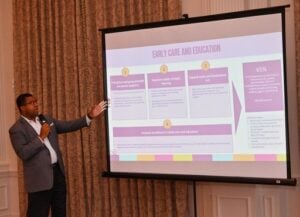
By 2030, these strategies will reach over 60,000 people and will contribute to 7,000 additional young people being on a pathway to economic mobility. Transformed systems will mean that the plan’s impact will extend beyond 2030.
SAM is leading change in Spartanburg County, providing critical access to data and aligning partners for success. Across the country, Cradle to Career Network members are ensuring stronger futures for kids and families by transforming systems. See what that work looks like in these stories from communities.






